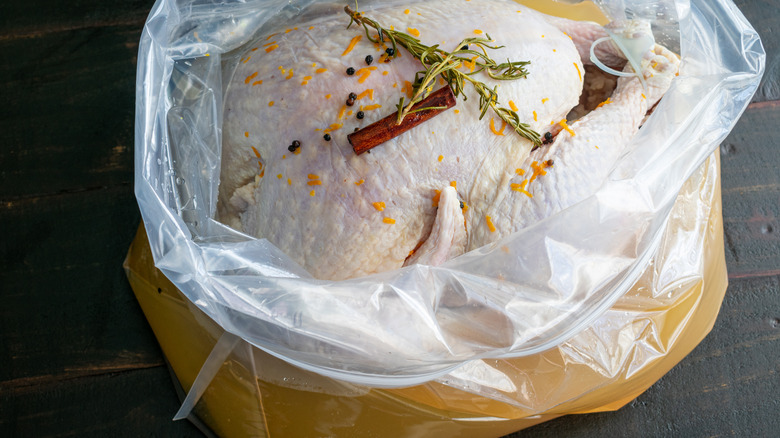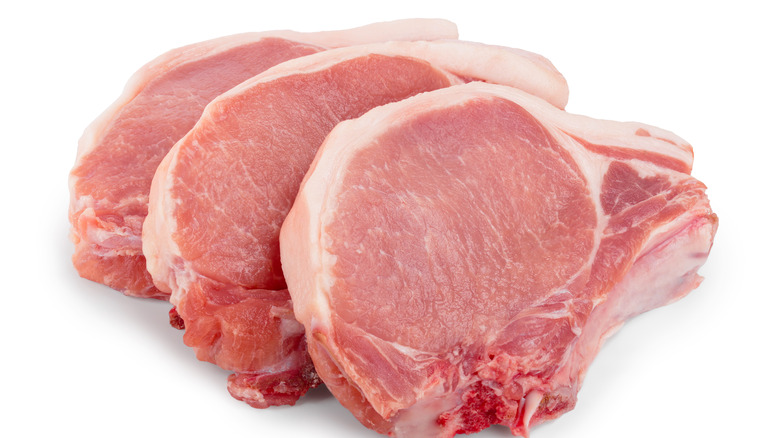The Type Of Meat You Should Always Brine Before Grilling
We might not have known about brining before it was introduced as a way to save our Thanksgiving turkeys, but the practice has actually been around for thousands of years, when it was used to preserve meat and seafood, per Food Network. Even today, when refrigeration is common, chef Kelley Heldt advises that a basic salt and cold water solution can still be used to get rid of any germs that sit on the surface of any cuts of meat or seafood (via LinkedIn).
However, America's Test Kitchen notes that brining does more than just keep meat and seafood fresh because the salt in the brine also interacts with the proteins found in meat, causing them to relax and bind in a different way so they end up with the ability to hold moisture. MasterClass says there are two ways to brine — by using a wet solution or a dry mix. When a wet brine is used, salt works as an agent to help meat hang on to whatever moisture it picks up from the liquid via osmosis. When a dry brine is used, the salt first extracts juices from the meat, before it is reabsorbed with the juices into the meat.
Some meats benefit from brining
To make a simple wet brine, you only need salt and water, but as Great British Chefs points out, using sea salt might be best, as it won't have any additives like iodine. The site also recommends that you jazz up the brining liquid by adding spices like peppercorns and coriander seeds, as well as woody herbs like thyme and bay leaves. Adding sugar is further recommended, because it not only adds flavor, it also helps meat caramelize as it cooks. To make a dry brine, Food52 recommends using kosher salt, as well as a blend of your favorite herbs and spices.
Different meats respond to brining in different ways. Lean cuts of meat like chicken breasts and pork chops are the ones that need brining the most because they lack the one thing that can help them survive an extended time on the grill. As chef Isaac Toups of Toups Meatery tells Taste of Home, pork chops and chicken "lack the fattiness to withstand a long time on a hot surface without drying out," which is what happens when they take their turn on the grill. In his Linkedin post, chef Heldt also weighs in, adding that a salt brine works best for poultry, pork, and seafood, while red meat like beef, lamb, and veal should do without.

